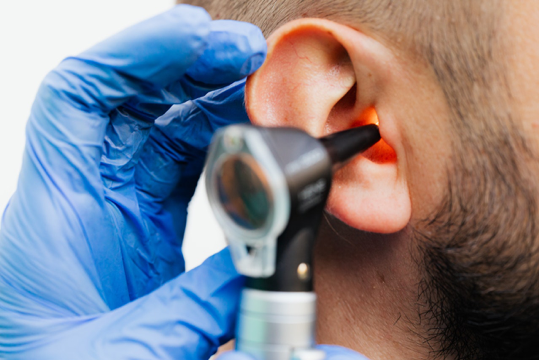Are there ways to break the cycle of tinnitus triggers? Tinnitus—the perception of ringing, buzzing, or other phantom sounds in the ears—can become a frustrating and persistent condition. For many people, the severity and frequency of tinnitus symptoms are closely tied to specific triggers. These can include stress, certain sounds, lack of sleep, diet, and even emotional responses. Unfortunately, the more you focus on these triggers, the more entrenched the tinnitus can become in your daily experience.
The good news? With awareness and the right strategies, it’s entirely possible to break the cycle of tinnitus triggers and reclaim control over your life. This post explores how to identify your triggers, manage them effectively, and reduce the emotional and psychological burden they create.

Understanding the Tinnitus Trigger Cycle
When a tinnitus trigger is activated—such as loud noise or emotional stress—it can increase the volume or awareness of the tinnitus. This can lead to a cascade of reactions:
- Trigger → Increase in tinnitus perception
- Increased perception → Anxiety, frustration, or panic
- Emotional response → Hyperfocus on the sound
- Hyperfocus → Continued amplification of tinnitus experience
The key to managing tinnitus is to break this loop—not by eliminating the trigger entirely (which may not be possible)—but by changing how you react to it.
Common Tinnitus Triggers
Understanding your unique triggers is the first step. Some of the most common ones include:
- Stress and Anxiety: Emotional tension and psychological stress often amplify tinnitus symptoms.
- Sleep Deprivation: Poor sleep or insomnia makes the brain more sensitive to noise, including phantom sounds.
- Loud Noises: Concerts, headphones at high volume, or sudden loud sounds can exacerbate tinnitus.
- Caffeine and Alcohol: For some individuals, stimulants and depressants can increase tinnitus intensity.
- Neck or Jaw Tension: TMJ dysfunction and muscle tension in the neck or shoulders are physical triggers.
How to Break the Cycle
The goal is to reduce the influence of triggers by changing your response to them. Here are strategies that can help:
1. Identify and Track Your Triggers
Keep a tinnitus journal for a few weeks. Note when your symptoms worsen and what may have preceded the flare-up—foods, stressors, environments, sleep habits, etc. Patterns will begin to emerge.
2. Practice Relaxation Techniques
Reducing stress is one of the most powerful ways to control tinnitus triggers. Try:
- Deep breathing exercises
- Progressive muscle relaxation
- Guided meditation or mindfulness apps
- Gentle yoga or stretching routines
These activities not only reduce stress but also shift your brain’s focus away from the tinnitus signal.
3. Improve Sleep Hygiene
A well-rested brain is less reactive to internal stimuli. Build a consistent bedtime routine that includes:
- Going to bed and waking up at the same time each day
- Avoiding screens and stimulating activities an hour before sleep
- Using white noise machines or calming music to mask tinnitus
- Limiting caffeine and alcohol in the evening
4. Sound Enrichment
Instead of trying to force silence, surround yourself with neutral background sounds that help your brain “de-prioritize” tinnitus. Consider:
- Soft music
- Nature sounds (rain, ocean waves, wind)
- White or pink noise
This is a key part of habituation—the process by which your brain gradually learns to tune out the tinnitus sound.
5. Cognitive Restructuring
Cognitive therapy helps individuals reshape their thoughts about tinnitus. Instead of thoughts like “This will never go away,” you can learn to say, “This is uncomfortable, but I can manage it.” That mental shift plays a huge role in reducing emotional reactivity.
Summary
Tinnitus doesn’t have to control your life. By identifying your personal triggers and using intentional strategies like relaxation, sound enrichment, and cognitive therapy, you can break the cycle that keeps tinnitus distress alive. The more your brain stops associating tinnitus with danger or discomfort, the less prominent and disruptive it becomes.
Effective tinnitus management isn’t just about changing your environment—it’s about changing your relationship with the sound. And that starts with knowledge, support, and the right tools.
Break the Cycle of Tinnitus Triggers: Get Personalized Help Online
If you’re ready to break the cycle of tinnitus and need professional guidance, online therapy can be a powerful resource. At the Tinnitus Cognitive Center™, Stephen Geller Katz LCSW offers specialized cognitive retraining therapy that has helped countless patients around the world find real relief.
Dr. Katz speaks five languages, and all sessions are conveniently conducted online—giving you access to expert care no matter where you live.
Tinnitus Cognitive Center™
Stephen Geller Katz LCSW
19 West 34th Street Penthouse Floor
New York, NY 10001
📞 646-213-2321
🌐 www.tinnituscognitivecenter.com




